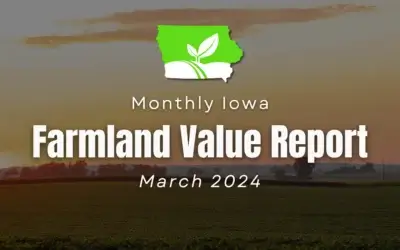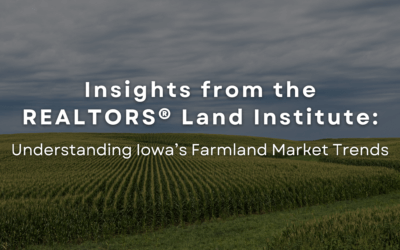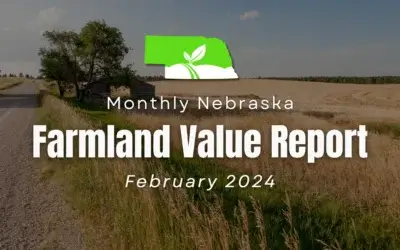How Do Farmland Auctions Work?
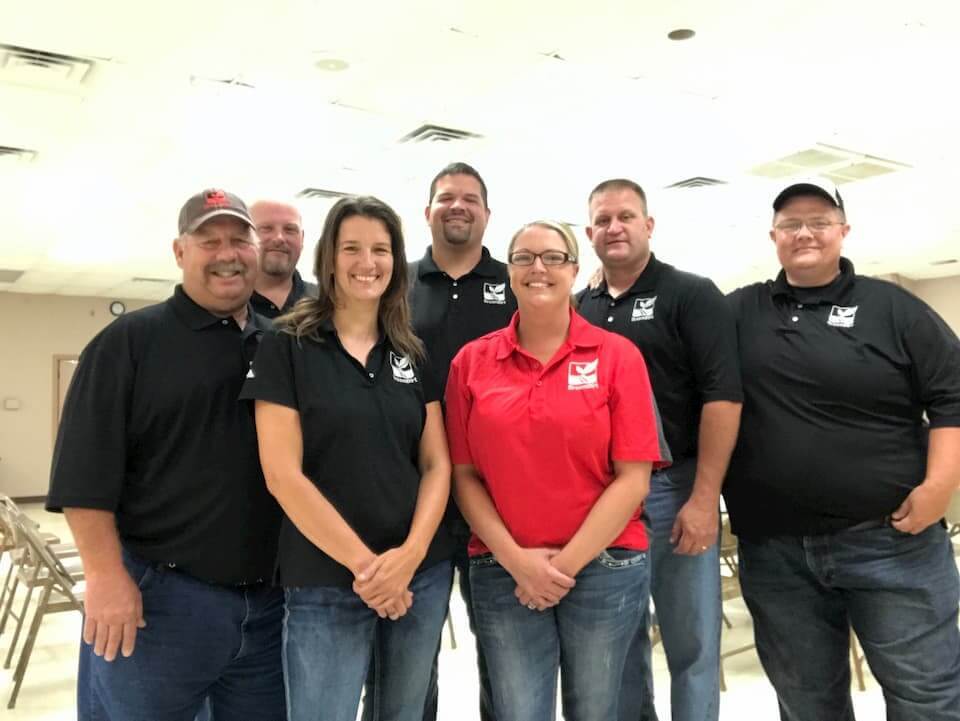
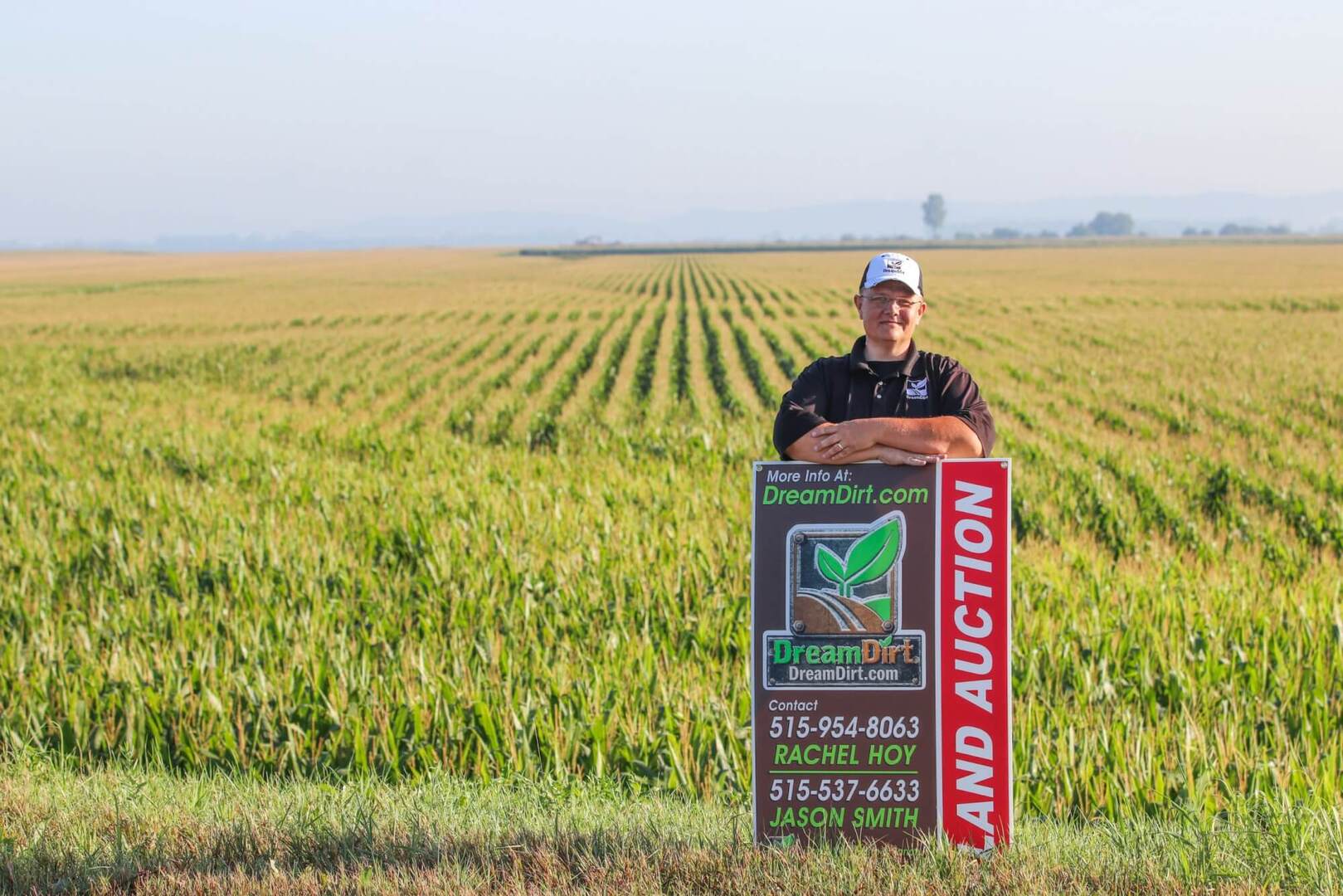
Jason J Smith
Auctioneer & Land Broker
Jason is an experienced farmland broker and auctioneer with extensive experience in farmland sales across this Midwest. Jason has worked with hundreds of clients to create advantageous outcomes. If you are selling land schedule a consultation with Jason by calling or using the calendar.
Phone: 515-537-6633
How Do Farmland Auctions Work?
“How do farmland auctions work? ” Fairly often I get this question and I first offer my joking response “pretty darn good”. It’s not extraordinary that you wouldn’t understand how a farmland auction works, most people that are not farmers don’t go to them and if you are selling a farm there is a high likely hood its because you have inherited it at some point and don’t have any interest in owning it or you are in a situation that requires selling the farm. Many people that sell farms really don’t understand the process so they painfully agonize over everything that is being told to them by different people. Some people will tell you that selling at auction is a sign you are desperate and some will tell you the farm is worth double what it really is and then when you contact professionals you’ll start to hear all of these pitches about who’s auction is best and why you should choose them. I can only imagine that when you are selling a farm you get your head filled with lots of stuff. It takes a lot of concentration to cut through all of that noise and find the right path forward.
MULTI PARCEL FARMLAND AUCTION WITH COMBINATION BIDDING
When I started doing my researched to write this post I came across an article by Brian Scott at the Farmers Life. How Do Farmland Auctions Work which is his account of actually going to an auction to buy farmland. Brian describes an auction which is known as a multi parcel auction with combination bidding which brings up my first point. Not all auctions are the same so as I write about how farmland auctions work I am talking about DreamDirt auctions and may at times references other methods I am aware. The multi parcel auction method with combination bidding is more popular east of Iowa and its a method that we use very sparingly west of there where we typically conduct auctions. Its not that this method isn’t effective but I think it takes some of the sellers control away, it can be confusing for bidders and can result in higher numbers of bidders walking out of the auction and while I understand the reason this happens I’ll save the specifics for another blog post when I can be more thorough. For this method the auctioneer would take bids on each tract of land 1 time. If there were 8 tracts they would do 8 rounds of bidding, one time for each tract. They may go through them a second time even. They would then add the total of those tracts and offer the entire farm for that price plus a pre-determined amount. For this example lets say the combination was $100 per acre so the average of the individual tracts came out at $3475, they would then begin combination bidding at $3575 and if one person bids they combination is in the lead and the farm will not sell in tracts but will sell as a whole, at least as one method goes. Some auctioneers will take the combination bid as high as it can go and then go back to the individual tracts and go back and forth until all bidding is exhausted. Unfortunately if there was a method of selling a farm that can irritate bidders that certainly is the most likely way to do it. Those that have to or need to buy will stick with it, but others that don’t can be prone to standing up and walking out. That may not be the auctioneers fault, it might just be frustration from the back and forth nature or it could be interpersonal conflicts with other bidders.
HIGH BIDDERS CHOICE FARMLAND AUCTION
DreamDirt on certain multi parcel auctions prefers to use a method that accomplishes the same results, maybe even better results but its really backward of the combination bidding called the high bidders choice method. Each of these types of auctions can be conducted in a myriad of different ways but what we would typically do is offer the entire farm to the crowd and begin taking bids. If the farm consists of 8 tracts of land that make up the farm the first high bidder will get the choice to take just 1 tract at that prices or up to all 8 tracts at that price. This really becomes a multi parcel auction with combination bidding but it moves along much faster than its counterpart with the possibility that bids will only be called for just 1 time. It gives everybody the same opportunity to bid on what they want to bid on to their highest price. If the first high bidder took just 1 tract and 7 were left the auctioneer would begin taking bids again and the 2nd high bidder would then choose. Again they could choose 1 tract or up to 7 tracts and this process would continue until all tracts are sold. We have used high bidders choice with as few as 2 tracts in the past and it could go as high as any number. This method also allows you to leave certain parcels out of the bidding choice and they can be sold off to the side as an individual tract. For example if you have 6 tracts where 5 of them are farmland but 1 of them is a house and acreage its advisable to leave that out of the choice if the value will be significantly different or will be sold in whole dollars versus a per acre figure like the land is sold.
ROUND ROBIN STYLE FARMLAND AUCTIONS
DreamDirt employs many different auction methods and strategies for our clients. High Bidders Choice is just 1 of many different options for a seller to choose from. Many farmland auctions are Round Robin style bidding. This is
a very typically single tract farmland auction, and used for multiple tract auctions as well. In Iowa, Nebraska and Missouri this type of farmland auction is easily the most common method of selling reserved farmland auctions. An auction with Round Robin style bidding would start at tract 1 calling for bids, then tract 2, then tract 3 and so on until a high bid has been set on each tract of land. The auction would typically go into a break at that point. This gives the auctioneers an opportunity to present the current high bids to the seller for confirmation of the sale. At this point the seller has the option to remove the reserve, keep the reserve or lower the reserve to a new point assuming the reserve had not been met prior to the break. The break also gives buyers an opportunity to think without the pressure and make phone calls without being distracted by the bidding at the same time. When the break is over the auctioneers will come back to the microphone and make the announcement. The seller has either confirmed or denied the sale. Shooting from the hip I would say about 92% to 95% of the time the seller does confirm the auction. If the sale is confirmed the auctioneer would do one last round of bidding and announce each tract sold once he has achieved the highest bid. If the seller did not confirm the sale after the first break its likely another round of bidding will occur picking up at the highest point achieved in round 1 and try to increase offers before taking a second break. At the second break the sellers are again given an the opportunity to take the reserve off, lower it or leave it the same if it has not been reached. This can continue on and on until the seller is satisfied or declares a no-sale of the property. No sales are actually rare at LIVE farmland auctions, they do occur occasionally but it is not frequent.
SEALED BID FARMLAND AUCTIONS
Another type of farmland auction in Iowa and Nebraska is the sealed bid auctions. Note above that I specifically said that no sales are rare at “LIVE” auctions. Sealed auctions are a little bit more shrouded in mystery and really lack the ability to create that end of auction excitement that live auctions create. Most sealed bid auctions are conducted by non-auctioneers that do not have the ability to bid call. For us at DreamDirt, sealed bid auctions are a rarity and would only be used in very special circumstances because it’s a process that can be more easily controlled by the buyer than the seller and it lacks the competition and excitement created in a live auction to push a farm to the top of market prices. As an example, many sealed bid farmland auctions I see will often have an initial round of bidding where a buyer is required to submit a written bid. From those written bids the top 3 bidders are then invited back for the final round of bidding. The problem with this method is that everybody in the first round is trying hard to get their bid high enough to get into the final round, while trying to keep their position below their perceived market value of the farm. The initial round of bidding will produce offers and has been seen before it can turn out that the top 3 bidders are father, son and son because they bid $7000, $7001 and $7002 making them the top 3 bidders. Now imagine for a moment that the farm would actually achieve $8500 at a live auction and now your final round that you limited to just 3 bidders has been hijacked by 3 people that can easily agree not to compete against each other. The seller is now powerless and can feel backed into a corner. There is always the option of not selling the property but if you are up against a deadline such as a 1031 exchange, a divorce proceeding, closing an estate the seller may well be trapped in a bad situation. Should they have the ability to declare a no sale the path forward already has some potholes in it. In the past I’ve followed a failed sealed bid auction that was conducted by someone else with a live auction putting 18 – 24 months in between and buyers don’t forget things easily. The neighbors never forget. Brining new competition to the live sale is the only way to attempt to overcome the no sale tattoo’d on the farm now. You will never hide the a farm was no-saled in the past, by the time the second auction comes everybody in the room will know about it. You’ll be depending on the skill of your auction team to be able to overcome that obstacle. Knowing what I know about selling farms I would avoid sealed bid auctions if you are able to, its something we should not recommend except in very rare occasions. Curious what current farmland prices in Iowa and Nebraska are doing? You can always find out at www.DollarsAndDirt.com
Request a Free Valuation for Your Farm or Land Property
Whether you’re ready to start the selling process, or even remotely curious, we will gladly provide you with a FREE Market Analysis! If you are in a position to sell land in the Midwest, we want to help you achieve the top of the market on your sale.
Unlocking the Value of Iowa Farmland: A Comprehensive Guide to Current Land Prices and Expert Insights – March 2024 Report
Welcome to Our Monthly Iowa Farmland Value Report In this monthly report, we dive into Iowa farmland values, helping you understand the factors that determine what your farm is potentially worth. Our goal as auctioneers and farmland real estate agents is to provide...
Insights from the REALTORS® Land Institute: Understanding Iowa’s Farmland Market Trends
Iowa Land Price Trends At DreamDirt Auctions, we're committed to keeping our audience of landowners informed about the latest developments in the agricultural real estate market. Today, we're excited to share insights from the REALTORS® Land Institute - Iowa Chapter's...
Unlocking the Value of Nebraska Farmland: A Comprehensive Guide to Current Land Prices and Expert Insights – February 2024 Report
Welcome to Our Monthly Nebraska Farmland Value Report In this monthly report, Jason Smith, Nebraska Land Broker and Auctioneer dives into Nebraska farmland values, helping you understand the factors that determine what your farm is potentially worth. Our goal as...


